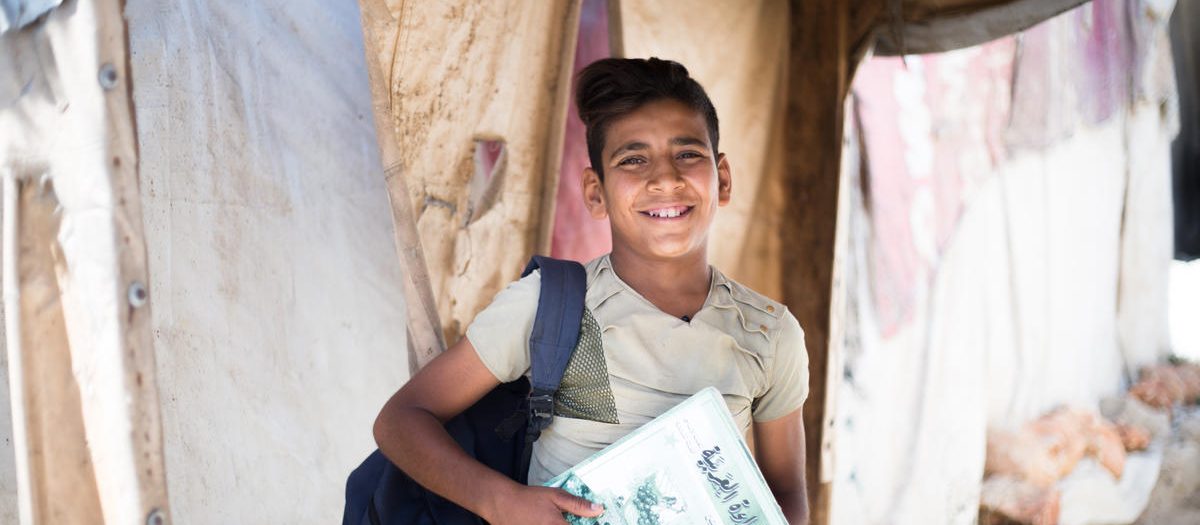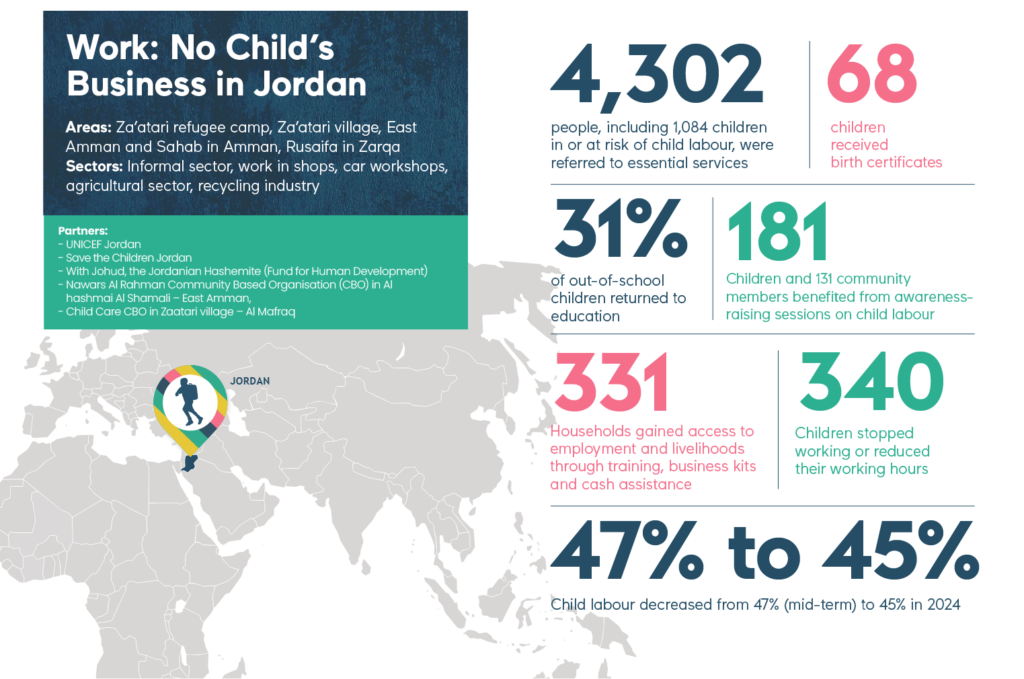
Child labour in Jordan
In Jordan, the National Survey on Child Labour conducted in 2016 is the main source of national data on child labour. According to the survey, the number of child labourers in Jordan more than doubled between 2007 and 2016. The number of children between the ages of 5 and 17 engaged in child labour in 2016 was 75,982. The number of children engaged in hazardous work was 44,917. Of these, 72% were between the ages of 15 and 17.
Child labour in Jordan, particularly in Za’atari refugee camp and East Amman, is caused by poverty, lack of basic services such as health care and education, and lack of access to work and adequate income for parents and caregivers. These problems are all rooted in or exacerbated by people’s refugee status. Thus, a major cause of child labour in Jordan, particularly in Za’atari refugee camp and East Amman, is people’s refugee status or background. This is an overarching cause and challenge that affects all of the above.
How we measure our results
- Key Performance Indicator studies (3x) during the baseline, mid-term and endline. In total, this included household surveys with over 2.464 respondents in Jordan.
- SenseMaker studies (3x) during the baseline, mid-term and endline to measure norms change in communities in which 130 adults and 236 children participated in Jordan.
- Gender analysis to develop gender sensitive and transformative interventions
- Annual Outcome Harvesting to reflect on our interventions and contributions to change
- External mid-term review and final evaluation
Impact summary
The programme realized an overall decrease in children engaged in child labour, dropping from 47% at midline to 45% in 2024.
Stories of change
Supporting women and refugee communities in Jordan
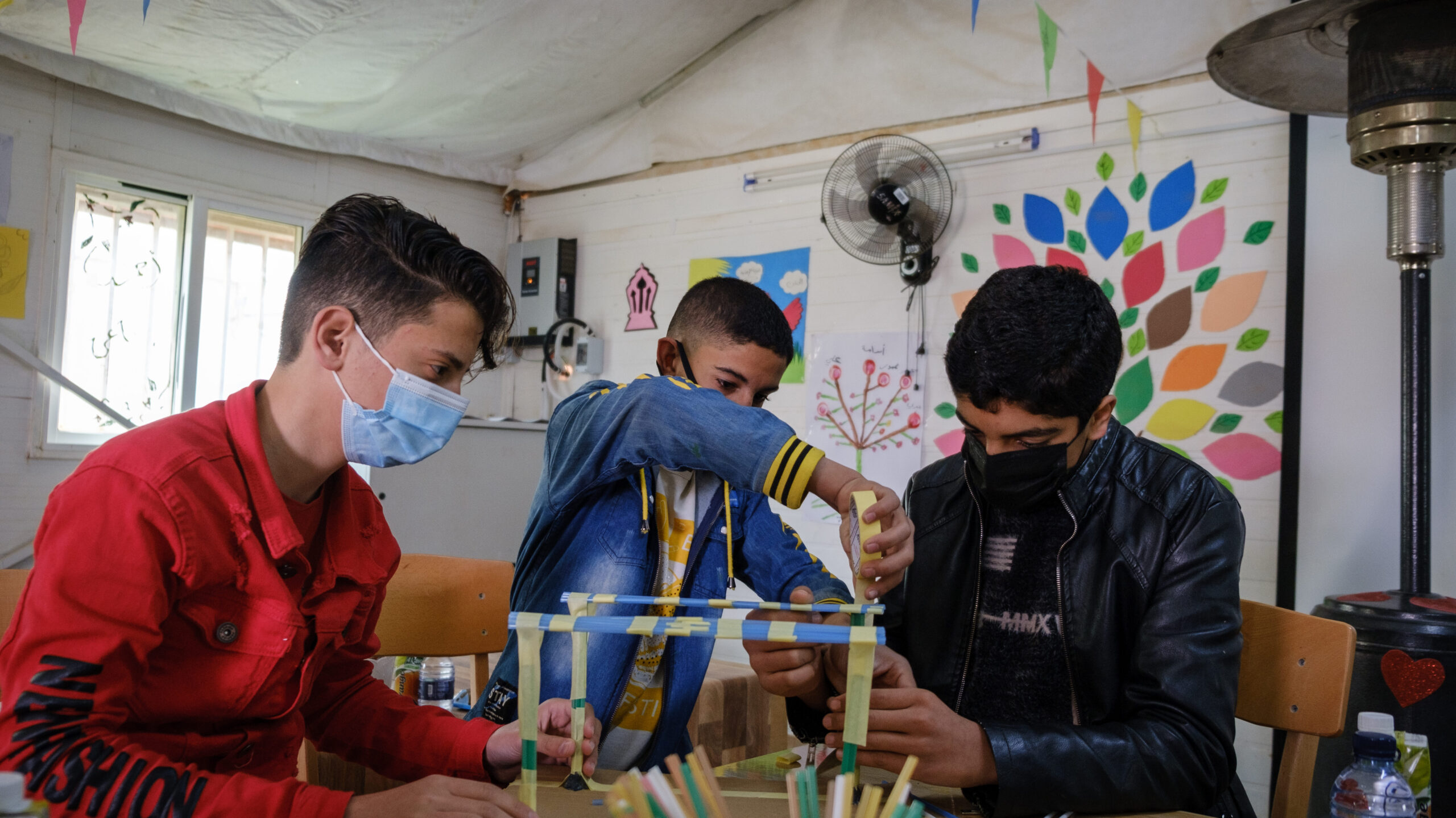
To work towards a social norm against all forms of child labour among all stakeholders – communities, governments and local businesses – WNCB implemented a combined approach of strategies. In particular, our community work with parents and women, and our work with the government, were critical in moving the needle on child labour, community norms and opportunities for families in East Ammam and Za’atari camp.
Our strategies included comprehensive case management, strengthening community-based interventions for children and positive parenting methods to prevent and respond more effectively to child labour. We supported family livelihoods, particularly for women in the areas, through vocational training and the provision of business start-up kits.
Before our programme started, more than 60 per cent of children in East Ammam and Za’atari camp were engaged in child labour or at risk of child labour. Many were out of school and working more than eight hours a day in family businesses, at home, in beauty centres, supermarkets, agriculture or factories. They had no safe spaces where they could learn, play and develop their talents.
This story is one example of how the improved economic and social status of women in families and communities has contributed to a reduction in child labour in our programme areas.
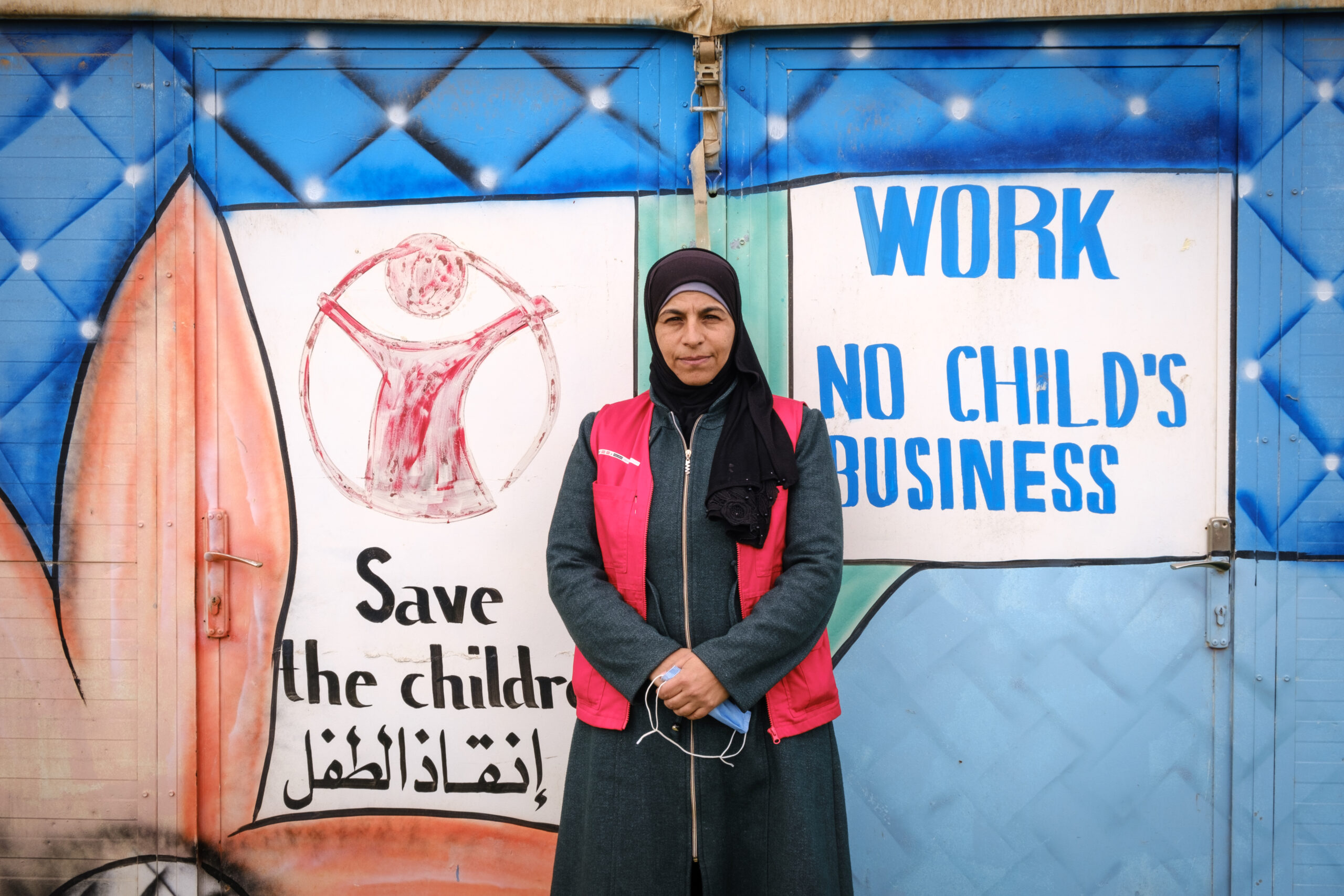
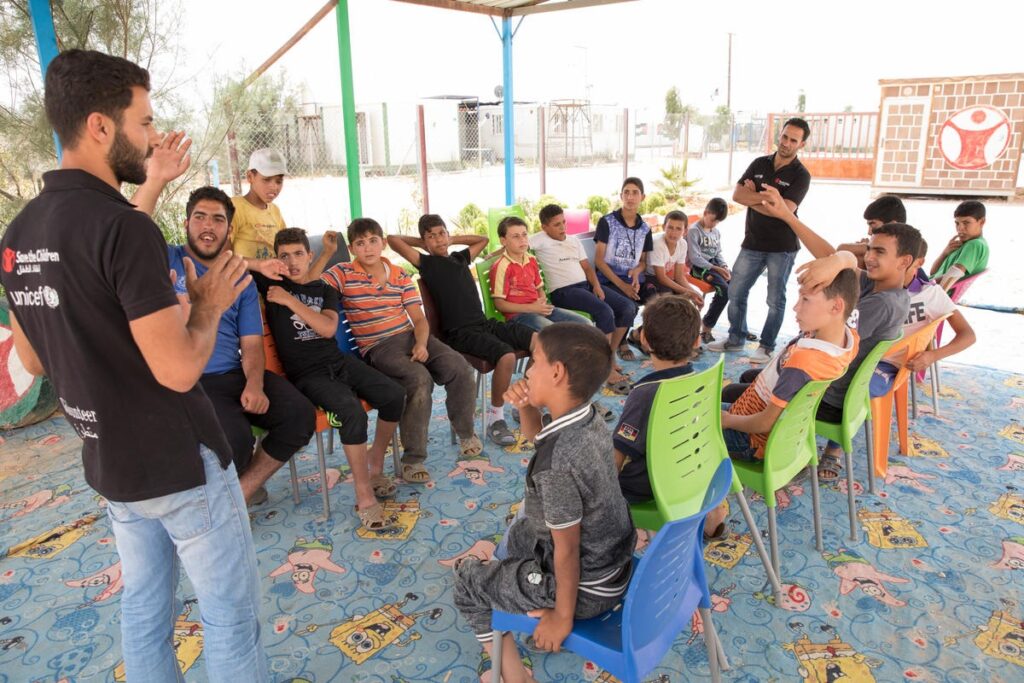
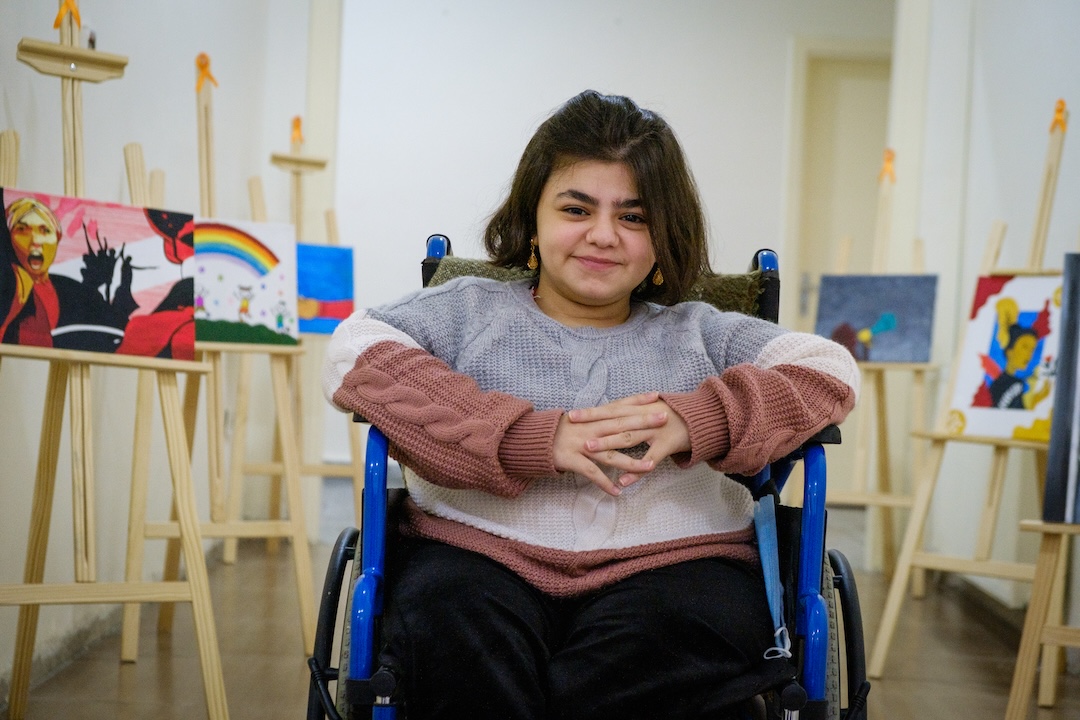
Achievements
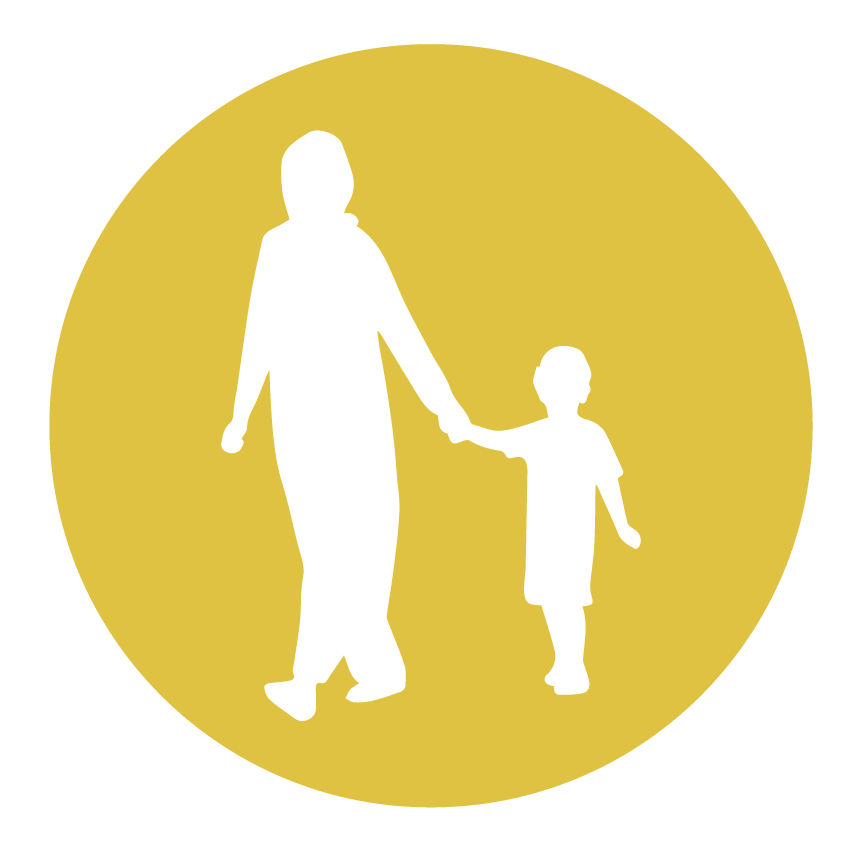
Communities
Appropriate case management led to 340 children reducing or stopping theirwork.
Child protection services
Our positive parenting sessions reached a total of 2,096 parents, the vast majority of whom were women. Aimed primarily at mothers, the sessions helped change norms among parents and caregivers about the importance of education and parenting practices, creating safer home environments, and staying out of work and in school.
A total of 4,302 people, including 1,084 children in or at risk of child labour, were effectively referred by the case management team to a range of essential services, including education, training, financial support, employment opportunities, mental health support, health care and other essential services. Through case management assessments and referrals, 2,978 children in Za’atari and East Amman learned basic life skills such as socialisation, stress reduction and communication at Save the Children Jordan’s Talent Hubs. As a result of receiving appropriate case management, 340 children stopped working or reduced their working hours over the course of the programme.
Healthcare
A network of private health facilities has been established in our project areas to help families with children in child labour who need health care. In addition, our Case Management Committees have successfully linked child labourers and their families to affordable, and in some cases free, health services within this network, thereby alleviating a financial burden. 22 families of children involved in the worst forms of child labour and in need of health care were reached and referred to health services.
Official documentation to access essential services
Our partners have helped people in remote areas of Jordan obtain the official documentation they need to access essential services such as education and healthcare. 68 children between the ages of 1 and 17, including 41 child labourers, received birth certificates through our partners’ case management and work with relevant government authorities. 13 marriages between refugee parents were successfully registered, resulting in proper documentation for them and their children.
Child protection committees
Child protection systems were strengthened through the establishment of 4 Child Protection Committees (CPCs) in our project areas. 42 people were trained in labour law, children’s rights, community projects and gender equality. These individuals are now equipped to raise awareness and combat child labour in their communities.
The CPCs held more than 16 awareness sessions on child labour and education, reaching 181 children and 131 community members. The CPCs in East Amman, Za’atari camp and Za’atari village established new partnerships with community-based organisations and government agencies. These partnerships enabled the committees to train and inform 336 families, children, employers and caregivers.

Schools
73% of children were enrolled in schools by the end of the programme period.
In the areas where we work 73% of the children are enrolled in schools. Over the course of the project, 31% of the children who were out of school at the start of the programme returned to school. This was due to various interventions such as positive parenting sessions, reports from the Child Protection Committee network and referrals to case managers who were involved in providing multi-sectoral services such as health, linking parents to livelihood activities or providing tool kits, help with paperwork and registration.

Economic Strengthening
Vocational training led to better job opportunities for 296 households.
Training, business start-up kits and cash assistance
Personal development training, vocational training, business start-up kits and cash assistance provided to over 331 households resulted in increased access to employment and improved livelihoods. Case managers referred some 296 households to vocational training, leading to more decent job opportunities. Our partners’ support for economic empowerment, with a particular focus on women, has helped families become financially and technically self-sufficient. They are less dependent on their children’s work to support them financially.
A total of 78 young people between the ages of 16 and 17 received personal development training in life skills, business ethics and business development, giving them access to better livelihoods.

Private Sector Collaboration
Improved livelihoods and income opportunities for the self- employed.
New online marketplace for services
A new gig platform (online marketplace) called ‘Mofeed’ now connects freelancers with clients, expanding a freelancer’s client reach beyond family, friends and neighbours. The gig platform ensures that improvements in the livelihoods and family incomes of self-employed people are sustainable after the programme ends.

Governments
Stronger partnerships between relevant stakeholders, including government institutions, civil society organisations and the private sector.
The WNCB’s programme support to the Government of Jordan has resulted in the development of an updated National Child Labour Framework and related Standard Operating Procedures. The WNCB has contributed (by influencing the Child Labour Taskforce) to the development of the Child Labour Bi-Law, the Child Labour Strategy 2022-2023 and the monitoring of activities under the National Strategy.
There are stronger partnerships between relevant stakeholders, including government institutions, civil society organisations and the private sector. This is a result of WNCB partners’ lobbying and advocacy work at national and community levels for children’s rights and against child labour.
With WNCB support, the National Council for Family Affairs (NCFA) improved its efforts to monitor and report on activities to end child labour. As a result, it developed a national strategy on child labour. The NCFA produced its first annual report on the implementation of the National Child Labour Strategy (2022-2030), based on monitoring visits, individual meetings and workshops on reporting and monitoring with 62 government officials.
A new Child Labour Case Management Help Desk was established in Zarqa Governorate with the support of our partners, contributing to improved child protection systems. This improved the capacity of the Ministry of Social Development (MoSD) to respond to child labour cases. During the programme period, the new MoSD helpdesk provided case management and referrals to government and non-government service providers for 44 children involved in child labour in Rusayfa and Zarqa.
12 MoSD social workers were trained in standard operating procedures, equipping them with the skills to provide quality, specialised, multi-sectoral case management services for child labour cases.


